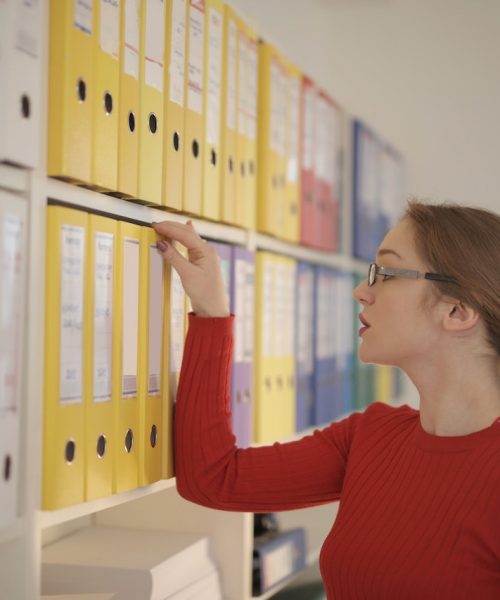In Canada, sole proprietors are responsible for reporting all business income to the CRA, as well as any provincial taxes. All business income is reported on the proprietor’s personal tax return. This article will focus on federal taxes for sole proprietors, while provincial taxes can be found in a guide to government taxes. Because a sole proprietor’s business earnings are the same as their personal income, there is no separate rate for business income tax.
Self-employment taxes
Self-employment taxes for sole proprietors in the country are required to be paid by self-employed individuals. These individuals run their own businesses and are responsible for recording and reporting their income and expenses to the Canada Revenue Agency (CRA). There are several ways in which self-employed individuals can save money while meeting their tax obligations.
If you are self-employed, you have to file an annual tax return to the Canadian Revenue Agency. Then, you must pay your tax liability by April 30 each year. In addition, you can accrue interest if you have not paid your taxes on time. The Canadian Revenue Agency (CRA) will notify you when you need to make installments to pay your taxes. These installments must be paid on March 15, June 15, September 15, and December 15 of each year.
When you are self-employed, you report your income on the General Income Tax and Benefit Return (T1). This form is where you report your business income and expenses. You can also deduct expenses related to your business activities. In addition, you must pay into the Canada Pension Plan.
In Canada, a sole proprietor is treated the same as the owner from a tax perspective. However, he or she may hire an accountant or lawyer to help them understand their obligations. In addition, a sole proprietor must register a trade name. In some provinces, it is not necessary to register a trade name.
In addition to paying taxes on income, self-employed individuals also must contribute to the Canada Pension Plan and the Employment Insurance program. Self-employment individuals should save at least 25-30% of their income for tax purposes. The best practice is to save between 25 and 30% of their income for tax purposes. In addition, self-employed individuals should report their entire income on their tax returns, and this is the only way to qualify for certain government benefits.
Whether or not you should pay self-employment taxes is a personal decision. The benefits depend on the type of business you have, but the general rule is that self-employment taxes are worth paying when your income is around forty thousand dollars and eighty thousand dollars a year. Remember that taxes are complex, so if you’re unsure of whether to pay self-employment taxes, consult a trusted professional.
Business-use-of-home expenses
As a sole proprietor, you can deduct some of your business expenses from your taxable income. These include home maintenance costs, electricity and heating. You can also deduct cell phone expenses if they are related to your business. If you are unsure of what expenses to deduct, check out the CRA’s Business Use of Home Calculator.
Business-use-of-home expenses can be deducted to the extent that they do not exceed your net business income before deducting any expenses. You can also deduct a portion of your rent related to your home workspace. However, if you later sell your home, you will be liable to capital gains tax.
For example, if you work from home part-time and use your home office for your business, you can claim a portion of the rent or mortgage payments. If you use your home office for business purposes for 5% of the time, you can claim a deduction for 5% of the amount.
If you run a home-based business, you can also deduct a portion of your rent or utilities as business expenses. This is not always easy to do, however, and some people are reluctant to take advantage of it. However, if you can prove that a section of your home is exclusively used for business purposes, you can claim this deduction. The deduction is available for a variety of business-related expenses, including utilities, mortgage interest, and rent.
Business-use-of-home expenses include capital expenditures for office equipment, computers, vehicles, and furniture. These capital expenses can be deducted as capital cost allowances. However, you should avoid capital cost allowances as they may remove your home office’s tax-exempt status. Motor vehicle expenses, on the other hand, include the cost of maintenance, the interest on your car loan, and lease payments.
Another way to claim business expenses is by hiring freelancers or professionals to help you run your business. These are usually nontaxable expenses but they can be deducted if they are directly related to your business. However, you should remember to keep detailed records of the expenses you incur while conducting your business.
Reporting employment income
If you’re a sole proprietor, you’ll have to report your employment income on the T2125, Statement of Business and Professional Activities. It’s a seven-page document with nine separate sections. You can find the form on the CRA’s website. Tax filing software will also have the form and guide you through filling it out. However, be aware that not all sections apply to you. For example, if you’re a website owner, you’ll need to include the URLs of any websites you own and the percentage of gross income you earn from them.
In addition to the T2 form, incorporated businesses must also file a separate T1 form. In Canada, corporations fall into three main categories: public, private, and Crown corporations. In addition to the T1 form, private corporations must attach a Schedule 50 forms listing their shareholders. These forms list any shareholders with a share of more than ten percent of the company’s total income. This form also lists incorporated self-employed employees. In addition, the owner of an incorporated business may pay himself wages and receive T4 slips. However, he/she must report employment income on his/her individual T1 return.
Self-employment income is taxable in Canada. In addition to federal taxation, self-employed income is subject to federal and provincial sales taxes. The rate is 15.3% for the self-employed, with 12.4% for Social Security and 2.9% for Medicare. The Schedule is required to be filed with the 1040 income tax return, as well as a Schedule C.
The tax laws require self-employed people to report all their income on their income tax return. This includes business income and professional income. You also need to report any reserves that you’ve deducted from previous years. If you have any contract work, you’ll need to report that income on the T2125.
In addition to reporting employment income on the tax return, sole proprietors also have to keep certain records of employees. These records must include the date of birth, name, and number of hours worked. The amount of overtime paid, deductions made from wages and pay dates must be recorded as well. While you can do this manually, it’s better to outsource payroll to an experienced provider.
Getting a small business accountant to help you find deductions
If you run a small business, you can take advantage of tax cuts by hiring a tax professional. Tax professionals can identify deductions for small businesses and can also help you track expenses. Most small business deductions can be claimed on Schedule C or Schedule E forms. Once you’ve claimed all your deductions, you’ll know what your total taxable income is. The more deductions you can claim, the lower your tax liability.
You can also claim certain fees related to your bank and credit cards. For example, you can deduct monthly account service charges, interest you pay on business-related purchases, overdraft fees, and more. You can also deduct merchant fees, which are associated with conducting business.
You can also find an accountant through referrals from other small businesses in your area. In many cases, the local chamber of commerce can recommend a small business accountant at a discounted rate. Once you’ve found a few accountants, you can interview them to find out which one can help you most. Make sure to discuss your business needs and accounting steps in detail.
A small business accountant can provide valuable insight into business finances and help you identify possible growth areas. They can help you manage inventory, pricing, and cash flow patterns. They can also help you understand how to obtain financing. Your accountant can also help you prepare financial reports for business loans.
You can use the section 179 expense deduction to write off a portion of the cost of qualified business property. However, you must use the property in the year it is purchased. However, there are some limitations that apply to this deduction, so be sure to consult with a professional before making your next business decision.





























